Myths about Getting Pregnant – 10 Facts and Tales Dispelled by Fertility Expert
Are you looking for the best sex positions to get pregnant? Want to have sex on exact ovulation days? Wondering which time of the day is best for sex? Today our fertility specialist will examine and dispel misconceptions and myths about getting pregnant to help couples complete their families.
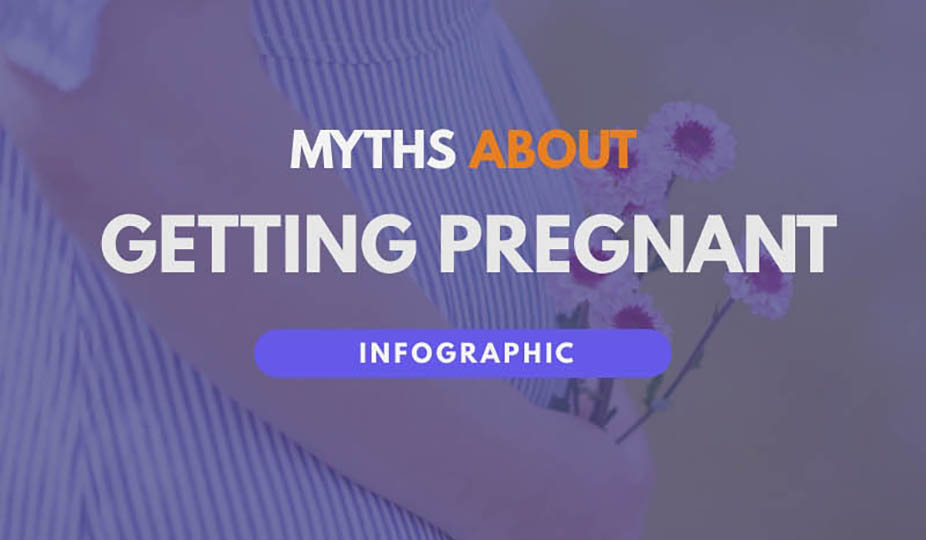
The work of fertility doctors is most often associated with the IVF procedure. Still, if a couple has problems with conception, they always talk about a natural way to get pregnant during the appointment. Many misconceptions and myths about pregnancy have also accumulated on this topic, on which Sunshine’s reproduction specialists will comment.
1. Which are the best sex positions to get pregnant?
Despite the excessive attention to this issue, the answer is primitively simple: sex position (as well as the genital shape and size) does not matter for conception. All that matters is that the semen has to get inside the vagina. There are male problems when not every sexual intercourse ends with ejaculation. A man must tell a fertility doctor about this at an appointment. For conception, it is imperative to exclude any gels, lubricants, candles. They may contain spermicides (substances that kill spermatozoa) and substances with unstudied effects.
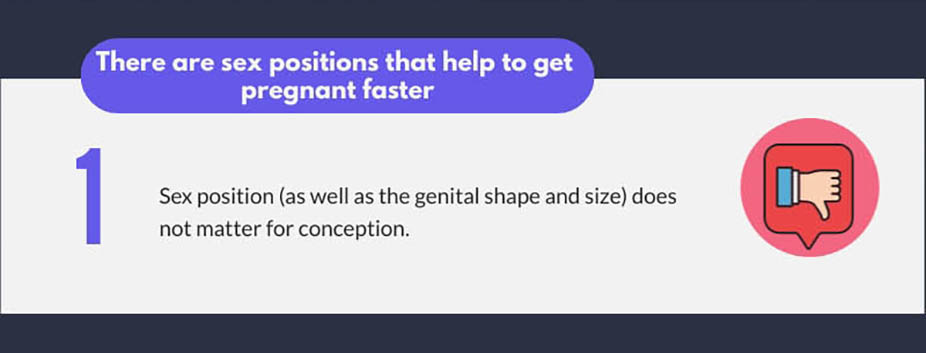
2. What day of the cycle is the best, and how does pregnancy depend on ovulation?
Ovulation is a release of an egg from an ovarian follicle. It occurs once a month, usually 14 days before menstruation. We are all used to counting the cycle time from the first day of the current menstruation, although it is better to do the opposite: the second phase of the cycle is more stable. It is important to know that the chances of getting pregnant are significantly higher if intercourse occurs before ovulation, not after it. The life span of sperm in a woman’s genital tract can last up to five days. It depends on the health of both sperm and tubes. Hence, the life of an egg after ovulation is no more than 30 hours, from which fertilization takes 16-18 hours. After ovulation, the chances of fertilization drop rapidly every hour.
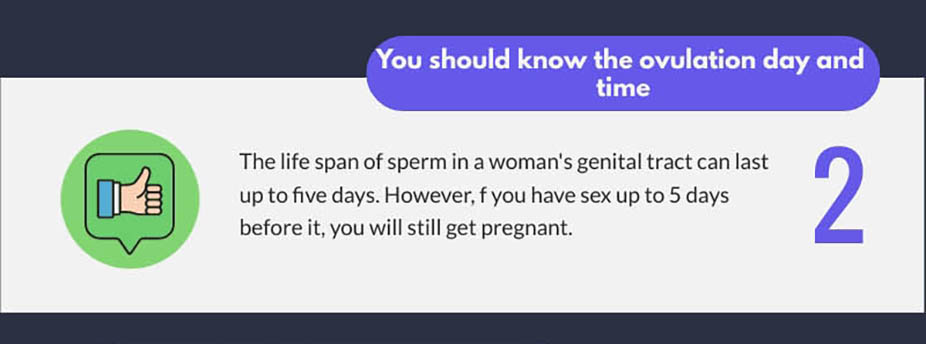
3. How much should a man abstain from sexual activity before conception?
After examining ejaculate in the laboratory, the World Health Organization (WHO) recommendations suggest abstaining from sex for 2-7 days (optimally 3-4 days). If one extends this time, the sperm count will increase, and the proportion of motile sperm will decrease. If the man reduces this time, everything will be the other way around.
Many women conclude that increasing the time of sexual abstinence increases the concentration of sperm in the semen and thus the chances of conception. The first part of the inference is correct; the second is not. The fact is that sperm survive in a woman’s body for a reason. There is an epithelium in the isthmic section of the fallopian tube, which is responsible for the `friendly reception` of sperm. Epithelial cells nourish sperm for five days. Then the long-awaited ovulation occurs, the level of hormones changes, and then only selected spermatozoa that have passed the cervical mucus filter run the last 15 cm to the egg. Therefore, `accumulating sperm` in the testicles can be counterproductive.
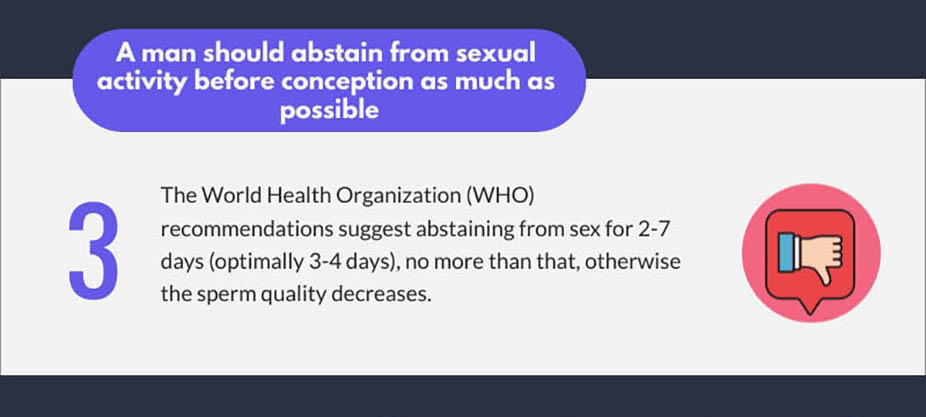
4. What is the best frequency of sexual intercourse for conception? – myths about getting pregnant
There is a widespread belief about pregnancy that the more often sex you have, the better. And this is indeed true and is confirmed by scientific research. At the same time, WHO experts argue that sexual activity with a frequency of twice a week, at least, can already be called regular and, generally, is sufficient for a healthy conception within 1-2 years. If you have regular unprotected sex with your partner and the desired pregnancy does not happen within this term, you need to consult a fertility specialist.
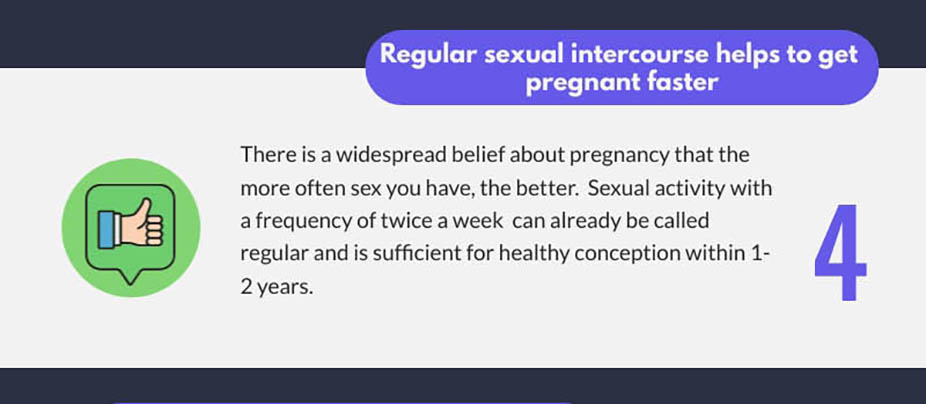
5. What time of day is the best for having sex?
Any time of the day works excellent. The time difference of 12 hours is insignificant compared to the lifetime of sperm in the female genital tract. But there is a debate about morning sex. It is easier for a man with an average sexual constitution to do it in the morning than in the evening. First, in the evening, overworked men and women are less enthusiastic. Secondly, testosterone, the hormone responsible for sex initiative, is produced more in the morning due to the activity of the adrenal glands. However, if you do not have sexual problems, the time of day does not matter for pregnancy.
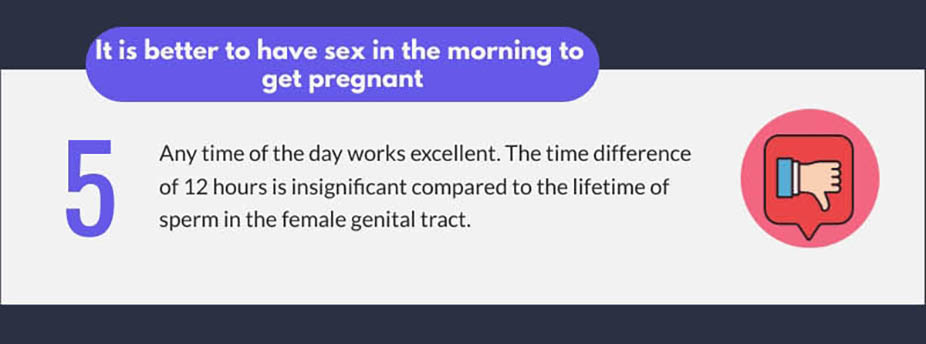
6. Is it better to postpone pregnancy planning to a more mature age?
Some people opt for this decision believing that women at a more mature age will be able to get pregnant with the help of assisted fertilization. We would not recommend doing this. The media, which constantly features articles about the natural pregnancy and birth of a child by a woman of 50 and older, form the wrong opinion. The ability to conceive is entirely related to the woman’s age. The probability of getting pregnant in women under 35 after fertilization procedures is up to 50%, while in women over 40 years old – only 18%, over 43 years old – only 5-6%. So, you definitely shouldn’t wait long. It is worth planning a pregnancy before the age of 30 since it is before the age of 30 that the chances of getting pregnant are the greatest.
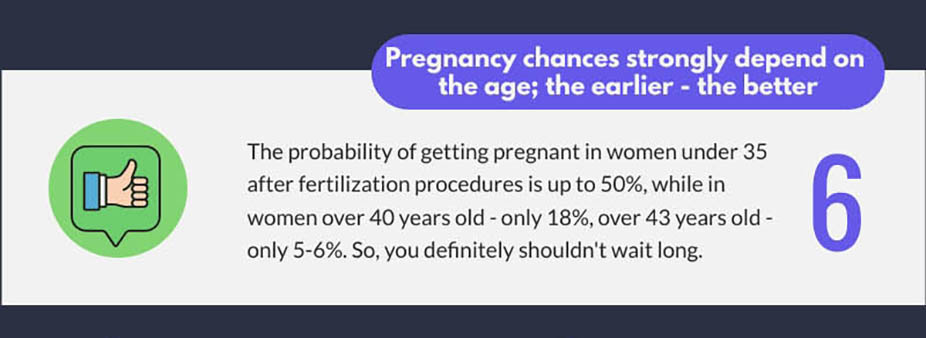
7. Is fertility only dependent on a woman? – myths about getting pregnant
The blame for the absence of children is most often laid on women. This myth has deep historical roots. However, modern research has shown that more than a third of reported infertility cases among married couples is associated with poor sperm quality in men. Moreover, the latter are in excellent physical shape and are young people. It is also worth noting that it becomes more difficult for a man to become a father with age, even if he retains erectile function and leads an active sex life. During the life of the sperm, DNA changes quite strongly, which affects its quality.
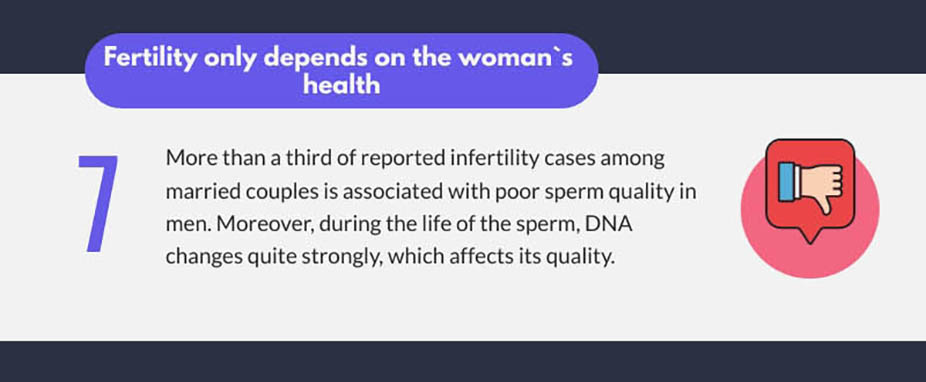
8. And if you still have sexual problems?
In this case, the chances of getting pregnant are increased by introducing the processed and concentrated sperm of the man into the woman`s uterine cavity. This procedure is called intrauterine insemination, IUI. It helps with such issues as hostile uterine mucus, low sperm motility, etc.
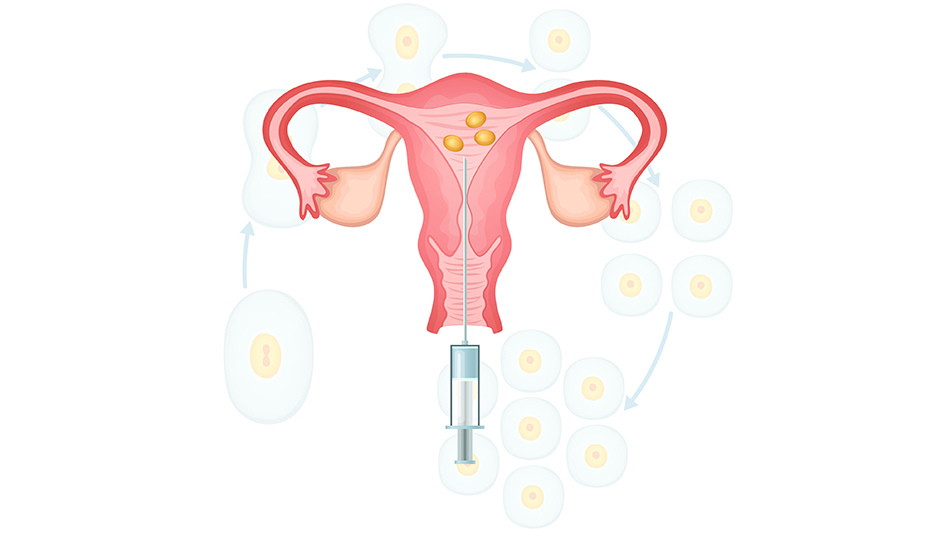
9. How to accurately determine the day of ovulation?
If you read all the myths about getting pregnant, you should have concluded that there is no need to determine the exact time of ovulation. It`s the most common pregnancy myth.
10. Is it possible to get pregnant after birth control pills?
This myth is largely associated with the spread of pseudoscientific media. According to popular opinion, oral contraceptives are an obstacle to conception, even after women stop taking them. This misconception is not true. A woman can become pregnant after 5 to 7 days after stopping the pill intake.
Summing up Myths about Getting Pregnant
These are just some of the myths related to getting pregnant and conceiving a child. Suppose the desired pregnancy does not start in up to 2 years. In that case, it is better to consult with a professional specialist in this field – a gynecologist or a fertility expert to avoid undesirable consequences. By contacting us, you can get a free consultancy about assisted reproductive techniques, learn how to pass all the necessary examinations, and get reliable and most complete information regarding pregnancy planning.
